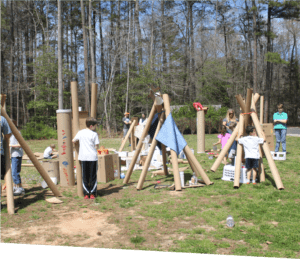It must be summer: Long days, humid nights, more bug bites than we can count and lots of great stories. I had the pleasure of snuggling with my 4-year-old daughter, Eliza, in her bottom bunk while reading one of our favourite books, Falling Up by Shel Silverstein. On page 38 there is a poem called The Voice.
There is a voice inside of you
That whispers all day long.
“I feel that this is right for me,
I know that this is wrong.”
No teacher, preacher, parent, friend
Or wise man can decide
What’s right for you – just listen to
The voice that speaks inside.
In the field of child development, we talk about children’s inner speech. This is their personal, internal monologue that they develop and practise as they navigate daily life. One of the most powerful ways to support this process is through play development through play, which helps children build and refine their inner voice. These narratives are shaped by the social experiences and spoken exchanges they encounter. Many voices contribute to this inner speech. By modelling language that supports children’s thinking, we help scaffold their vocabulary. We assist children in processing difficult situations by talking through events with them. By thinking out loud, we make our ideas more accessible to them. As children grow, they sift through everything they see and hear, working through various concepts and developing their understanding.
The role of play in developing a child’s inner voice
How do children develop and practise their inner speech? It all begins with play. Through play, children explore their own self-initiated ideas. As they engage with these ideas, they think, talk, and think some more. You can hear a child whispering to herself as she builds a tower out of blocks, carefully choosing which shapes and sizes to use. This “thinking out loud” becomes part of the child’s inner speech. We witness the drama unfold as a child role-plays different characters, giving voice to opposing forces like good and evil, strength and weakness. Through play, children develop their voice – not just in how they talk, but in expressing their own opinions, determination and understanding of their place in the world. This process of play development through play allows children to think, talk, and continually develop their understanding of the world.
But what happens when children don’t play? They stop listening to the “voice that speaks inside” and, in a sense, lose their own voice. In a world that values democracy, where each person is encouraged to believe they have something valuable to contribute, we cannot let children lose their voice.
play = voice
Together, we can all support child-directed play. Learn more and contact us with any enquiries.
By Anna
